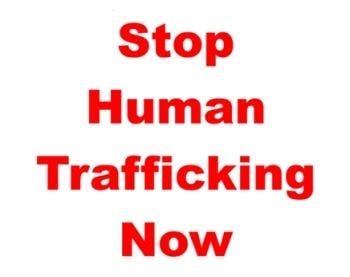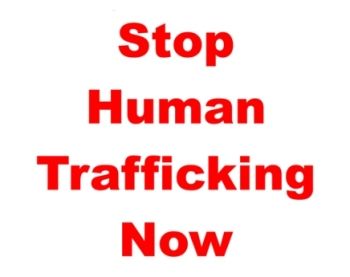Breaking the Rings of Human Trafficking
Apr 19, 2021
Story


Recently, I watched as the Court of Appeal in Nigeria increase the sentence of a lady in her mid thirties from two years to seven years in prison. The lady, who heads a human trafficking gang, was caught by immigration officers while attempting to traffic eighteen young girls across the border to Niger Republic before dumping them in Algeria for full time prostitution. She had appealed against her initial sentence of two years but an obviously irritated and fuming panel of justices varied the sentence.
Throughout the course of the proceedings, top on my mind were the questions, how strong are the provisions of the law relating to human trafficking? How serious is the issue of human trafficking being treated? What social equalities need to be provided to reduce this disturbing act?
I struggled for answers…
For the ladies rescued, their stories varied in degrees and perspective; some wanted greener pastures abroad and were obsessed by it, others were excited about the opportunity to travel to a foreign country, while some others were simply bought for money from their masters who had brought them from the village as domestic workers. With unending promises and false hope of a better life, the young girls quietly packed their bags from their villages without the notice of any immediate family member into the hands of their “helpers”. To these young girls, a good life wasn’t far away; all they had to do was walk into it…
From the onset, the deal was very clear, the trafficker promised to get them initial jobs so they can pay back the cost invested on them. What the poor girls did not realize was that like several other girls who had gone before them, they will either pay for the rest of their lives or pay with their lives!
To ensure compliance, the young girls were taken to a juju priest for oath taking where their pubic hairs were scrapped off as part of the rituals. Such is the level and extent of the worrisome act of human trafficking.
According to the United Nations statistics, 80% of those trafficked across borders are women while 50% of them are minors. In Africa, the root causes of the thriving business of human trafficking ranges from poverty, child labor, lack of employment, lack of family planning, the culture of loaning children or sending them to better suited families to corruption and porous borders. Tighter measures are needed to grind human trafficking to a halt.
The next time that man down the road tries to lure you with a few dollars, the next time that woman upstairs promises you some greener pastures abroad, the next time your friend tries to convince you to walk to seme border between Nigeria and Benin, run to Morocco, swim to Spain and board a train to Italy under the guise of some ‘foreign trip, better life and international trade’ take a closer look at the offer, use your brains and remind yourself the that you are priceless.
As I end this piece, the nagging question on my mind remains, how to we break the ring of human trafficking and how soon can it be done?
I still struggle for answers…




